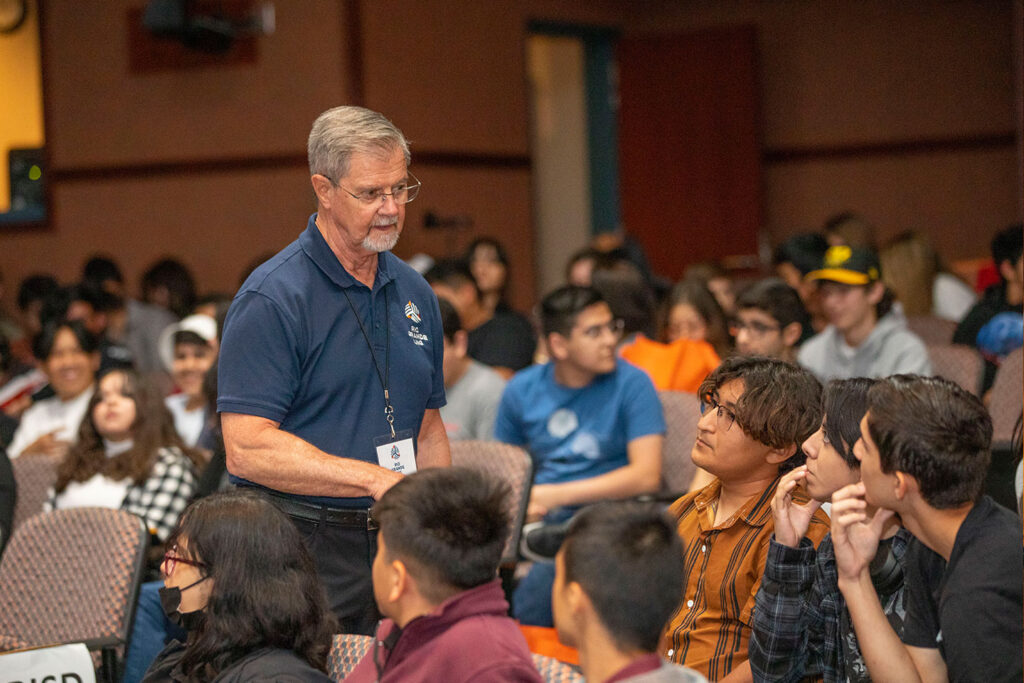Nearly 600 people and five media outlets attended a series of eight NextDecade-hosted liquefied natural gas (LNG) safety demonstrations in Brownsville and Harlingen during May 2023.
Students from more than a dozen schools, as well as residents, first responders, local officials and company representatives from eight cities “oooed,” “ahhed,” applauded and cheered as Patrick Couch, Senior Vice President of Technical Services at Gladstein, Neandross and Associates, proved that with the right safety equipment, LNG poses no threat to the environment or people–even if you drink it.
“What happens when the LNG boils off?” he asked. “What’s left? Ice cold water.”
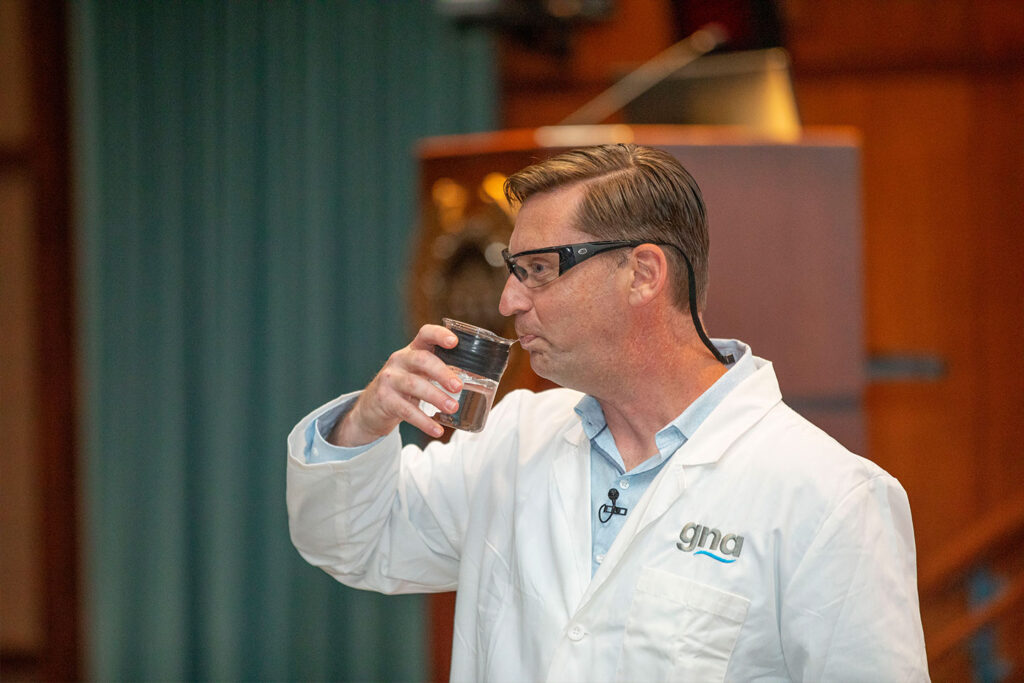
These demonstrations were conducted not far from several NextDecade staffed tables—or information stations—that collectively outlined our project intentions and goals, safety approach and community impacts. Bechtel also hosted a station addressing employment opportunities.
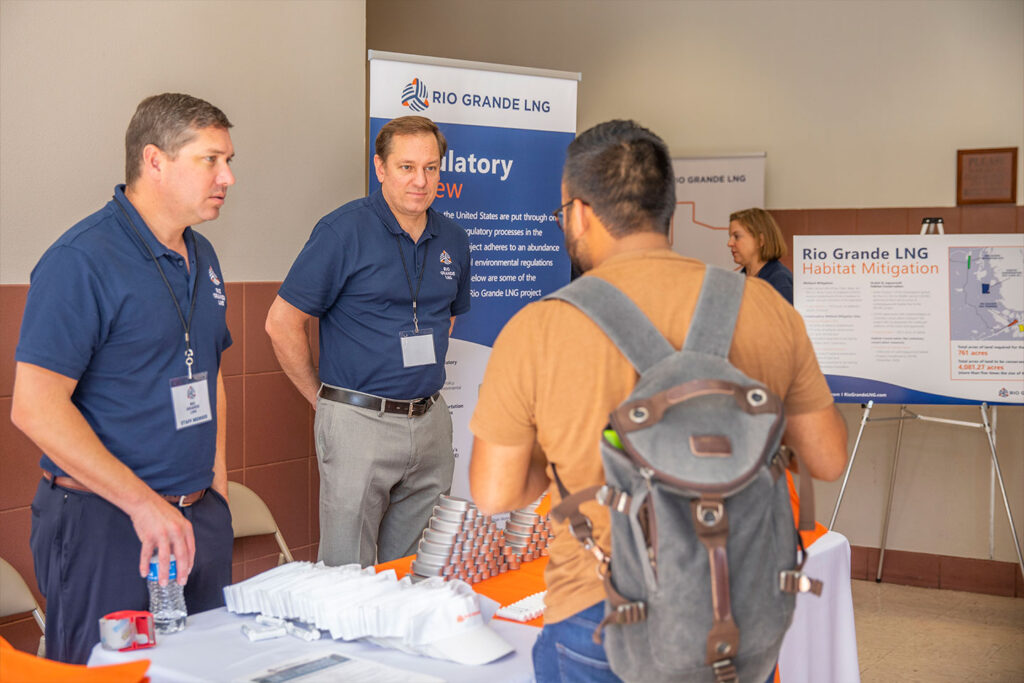
Giving students the floor
The hour-long demonstration included audience participation as well as a question-and-answer session.
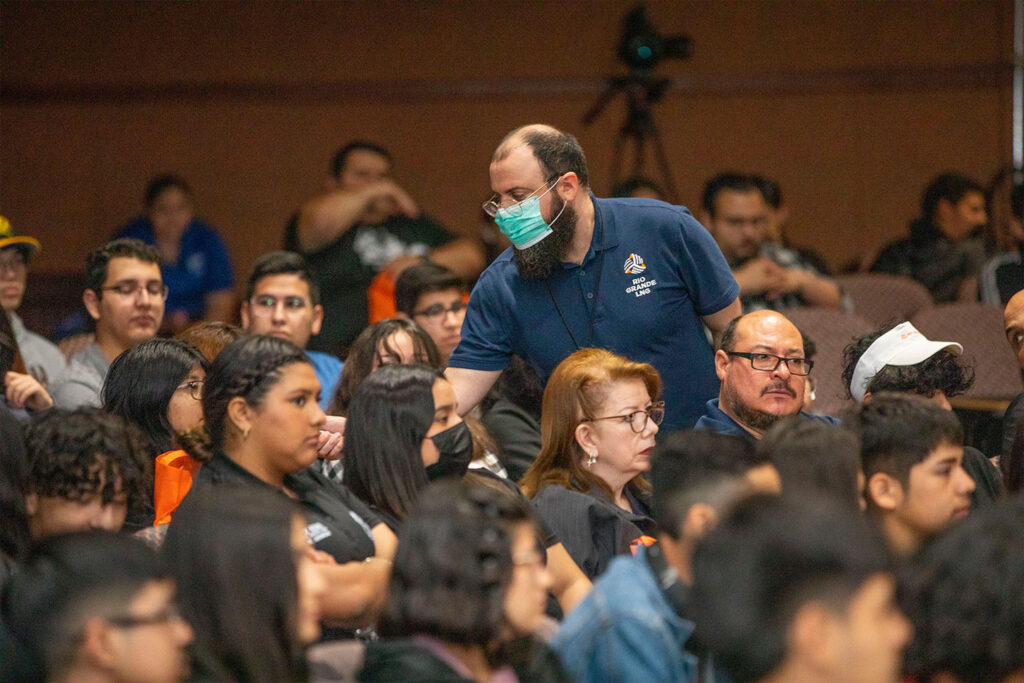
Below is just a sample of the more than 30 questions students asked:
Q: Do you have a plan to source local workforce to fill jobs?
A: Providing well-paying, sustainable, long-term jobs will be important, and our commitment is to generate great job opportunities for the local community.
For the first phase of recruitment, the pre-existing LNG experience will be critical so we can efficiently and safely launch the project. But in the mid- and long-term, LNG knowledge can and will be built here.
We are working to offer opportunities for students and young talent. For our 2024 Internship Program, we will focus on the local colleges for recruitment.
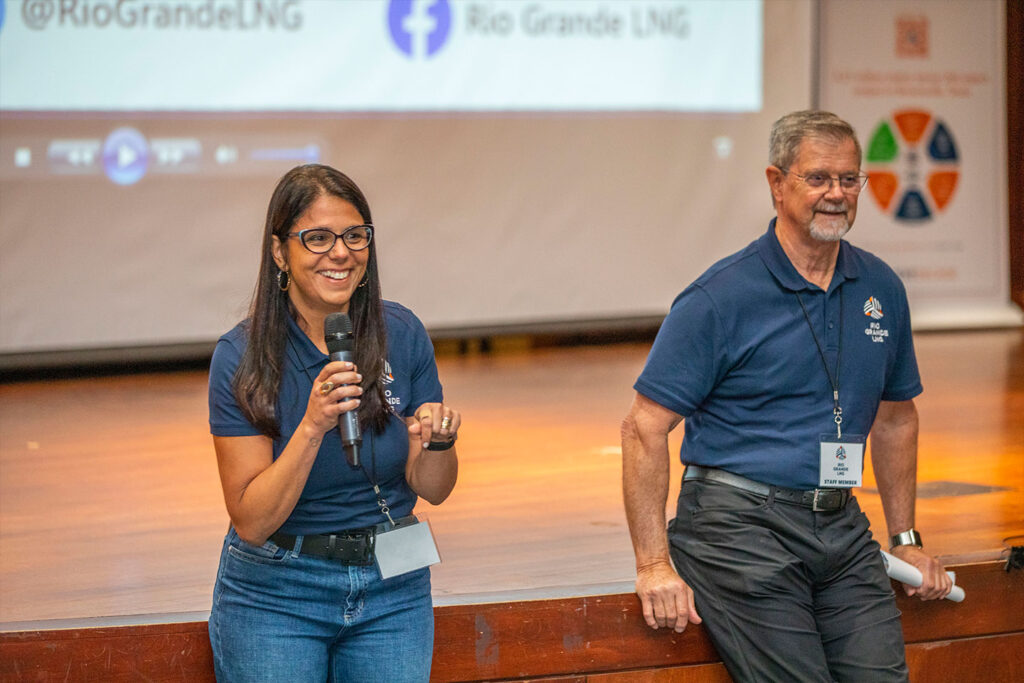
Q: What happens if there is an LNG leak or spill?
A: LNG is odorless, colorless, non-corrosive and non-toxic—it is not explosive and will not burn as a liquid.
Q: How long does it take the natural gas to turn into a liquid once it enters the facility?
A: Less than a minute.
Q: What are the environmental effects of the facility?
A: We are deeply committed to delivering our RGLNG project responsibly. NextDecade will protect in perpetuity over 4,000 acres of land in the Rio Grande Valley, whereas the Terminal will consume approximately 761 acres of land, which is five times the size of the actual facility. A rigorous regulatory process ensures that the RGLNG project will adhere to the host of federal and state environmental regulations to minimize environmental impacts.
Q: Given the political climate and climate change, what is the sustainability of LNG?
A: The International Energy Agency stated last year that achievement of its net-zero emissions scenario requires the global energy mix to undergo a profound transformation as low‐emissions sources, such as LNG, ramp up dramatically displacing more-carbon intensive sources, such as coal, across the whole energy sector.

















